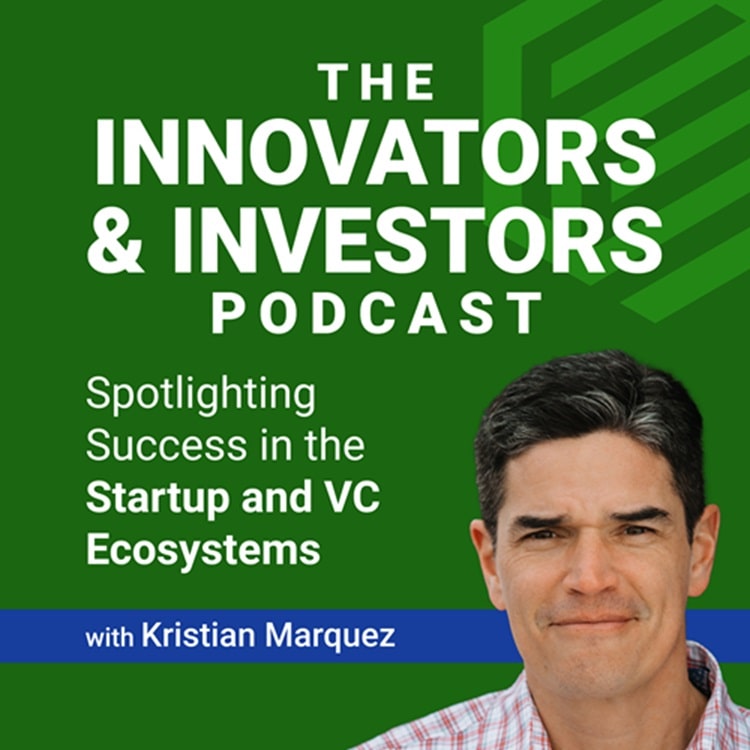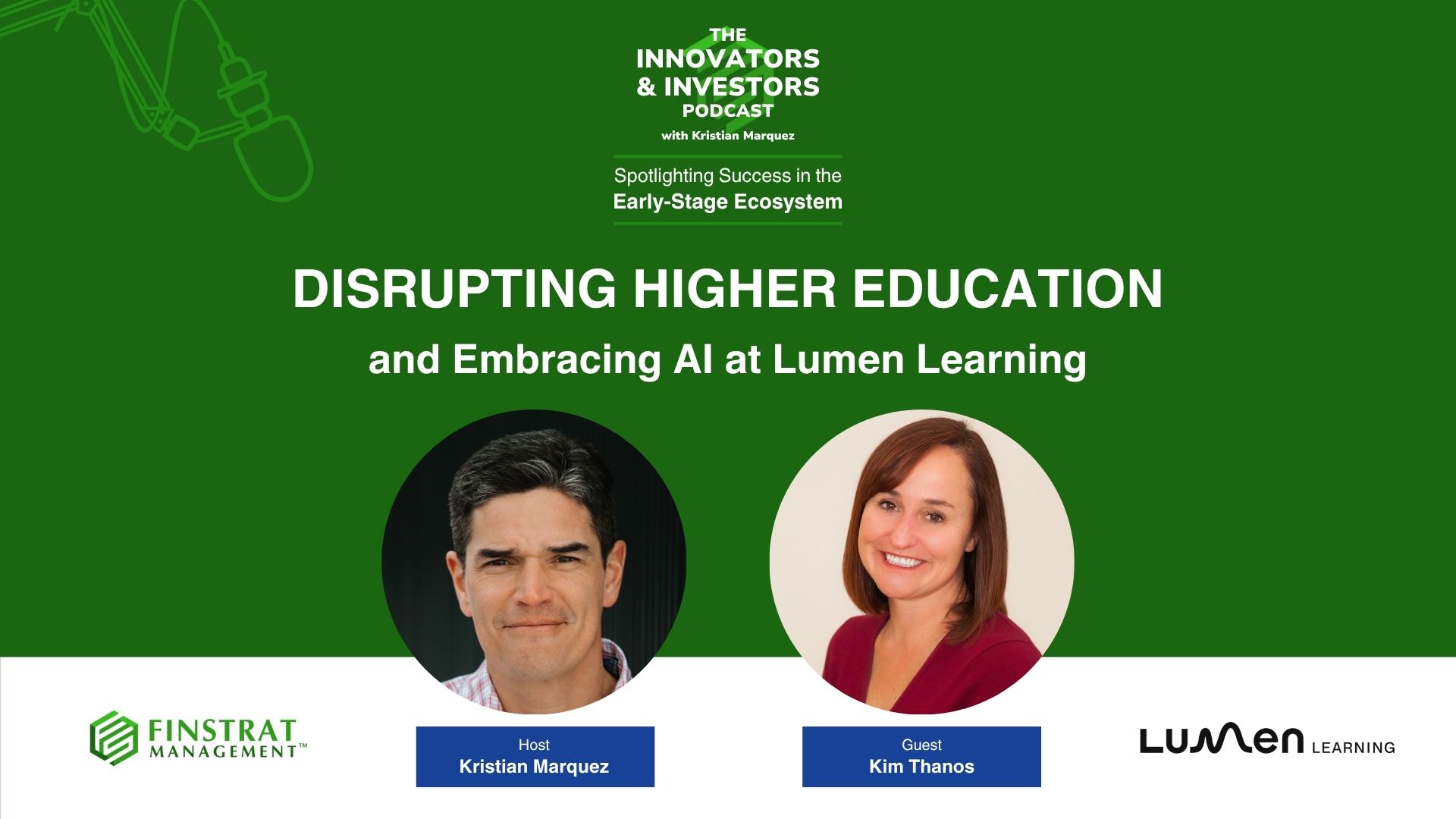Highlights
- Lumen Learning offers digital, affordable alternatives to costly college textbooks targeting high-failure gateway courses.
- Founded through a Gates Foundation grant to improve success for at-risk students using openly licensed content.
- Close, ongoing collaboration with faculty was crucial for product innovation and adoption in diverse institutions.
- Fundraising balanced mission-driven grants and angel investment focused on scaling efficiently.
- Generative AI accelerated content creation workflows and pushed rethinking of course learning outcomes.
- Success measured by clear product-market fit demonstrated in committee approvals and institutional wins.
- Kim stresses the importance of continuous learning, fast iteration, and risk-taking decisions for founders.
Summary
This episode of The Innovators & Investors Podcast features Kim Thanos, founder and CEO of Lumen Learning, who shares the story behind the company’s mission to transform college education by replacing expensive textbooks with affordable, high-quality digital learning materials. Lumen Learning focuses primarily on gateway college courses that are crucial but have high failure rates, particularly impacting at-risk students in their first year. Inspired by a Gates Foundation grant, the company developed openly licensed, customizable course materials priced significantly lower than traditional textbooks. Over nearly 13 years, Lumen Learning evolved through close faculty collaboration, incremental product innovation, and strategic funding combining grant and angel investments. Kim emphasizes the critical importance of direct faculty and student engagement to validate product-market fit and drive adoption. She also discusses the impact of generative AI on internal workflows, content development, and adapting learning outcomes to prepare students for AI-integrated workplaces. Looking ahead, Kim reflects on the challenges and opportunities in education amidst AI disruption, highlighting the need to embrace AI tools rather than resist their use, shifting academic integrity perspectives accordingly. She underscores the vital leadership lessons around continuous learning, rapid iteration, and making timely imperfect decisions in high-growth ventures.
Key Insights
- Tackling Textbook Affordability and Accessibility: Lumen Learning’s approach targets the systemic problem of high textbook costs that negatively influence student enrollment and success. By using openly licensed materials under Creative Commons, the company drastically reduces costs (initially $5, now $35 per student compared to $180+ traditional textbooks), directly addressing affordability and accessibility barriers. This strategy disrupts the legacy publishing model while offering a scalable, sustainable alternative tailored to real classroom needs. The focus on gateway courses amplifies impact by targeting classes that particularly hinder student progress.
- Faculty-Centric Product Iteration Drives Adoption: Rather than relying solely on digital innovation divorced from users, Lumen Learning engaged directly with faculty members across multiple institutions—often visiting 30 colleges personally—to observe how materials were used, gather real-time feedback, and adapt content and platform design. This iterative, user-driven process balanced simplification and robustness and informed transitions, such as integrating with learning management systems for seamless use. This close relationship also helped build emotional commitment among faculty, turning skeptical educators into vocal supporters and championing adoption. It demonstrates that deep customer empathy and iterative validation are key to solving entrenched educational problems.
- Strategic, Dual-Source Funding Fuels Mission and Scale: The company deliberately combined the strengths of mission-aligned grant funding (e.g., Gates Foundation) focused on R&D and impact with traditional angel investment aimed at scaling sales, marketing, and infrastructure. This hybrid funding approach allowed Lumen Learning to maintain mission clarity and product quality while gaining access to capital needed to expand reach efficiently. However, Kim notes awareness of trade-offs such as potential gaps in follow-on funding and evolving investor alignment over time, highlighting the strategic importance of selecting investors who share vision and provide active support beyond money.
- Generative AI as a Catalyst and Challenge for Educational Content: AI has transformed both internal processes and educational frameworks for Lumen Learning. Internally, AI enables rapid generation of diverse, customizable examples and drafts, increasing content variety and alignment with student interests without slowing production. Externally, AI prompts a reevaluation of learning outcomes—for example, incorporating AI literacy and usage skills into course curricula since students will enter AI-augmented workplaces. Additionally, AI aids faculty with smart tutors and efficient exam customization, demonstrating how technology enhances teaching efficacy. However, the sector must confront academic integrity concerns and shift from prevention to productive integration of AI tools.
- Product-Market Fit is a Continuous, Data-Driven Journey: Kim underscores that product-market fit is not a binary milestone but an ongoing process validated chiefly by objective outcomes. Win rates at different sales funnel stages—from initial interest to committee approval—serve as key indicators of true adoption. Informal user praise is insufficient if widespread faculty and institutional acceptance lag. This pragmatic, metrics-driven approach to product fit and marketing efficacy helps avoid wasted spend and aligns resources with effective tactics. It also reveals the realities of changing entrenched academic practices involve different buyer personas and require sustained outreach.
- Founder Mindset: Embracing Learning, Risk, and Iteration: Kim’s reflections on entrepreneurship stress the importance of dynamic leadership that grows alongside the company’s evolving needs. She advises founders to expect uncertainty, prioritize continuous learning from diverse sources, and make decisions quickly—even imperfect ones—with a readiness to iterate based on outcomes. This mindset counters the paralysis of waiting for perfect information, emphasizing speed, adaptability, and leveraging collective expertise as foundations for scaling in complex markets like education technology.
- Education’s AI Disruption Requires Cultural and Pedagogical Shifts: The conversation highlights how AI is profoundly shifting educational paradigms beyond technology adoption—forcing stakeholders to rethink definitions of cheating, learning objectives, and faculty roles. Instead of banning AI usage, effective education will teach students how to responsibly and skillfully harness AI tools, much as word processors transformed writing. This cultural shift requires new policies, supports, and frameworks for academic integrity and skills development, signifying a fundamental transformation in pedagogy driven by emerging technologies.
Overall, the podcast provides a rich, nuanced look at Lumen Learning’s mission-driven journey to modernize course materials, balance innovation with practical adoption challenges, integrate cutting-edge AI, and evolve as an impact-focused edtech leader while navigating the complex ecosystem of funding, user engagement, and education reform.
Stay up -to-date with Kim Thanos and her work with Lumen Learning.
Follow the show on your podcast channel of choice or listen below:




